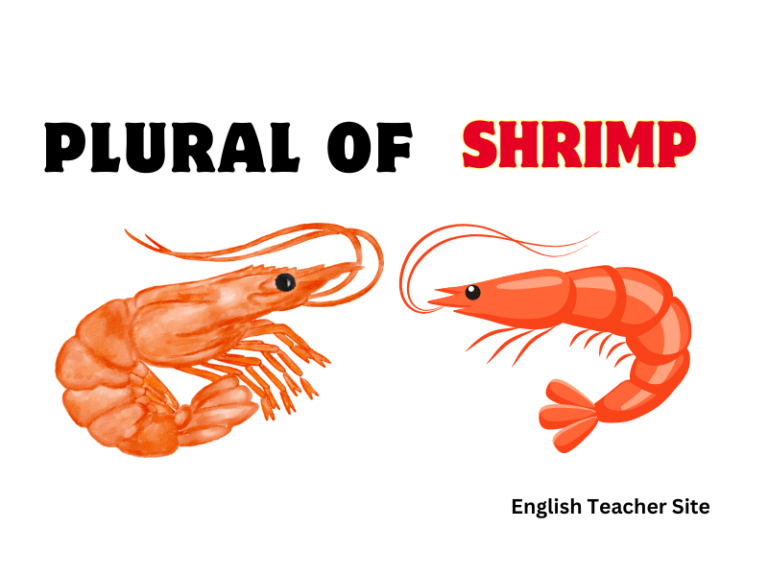What’s the Plural of Genus: Understanding Scientific Terminology

- The singular term ‘genus’ has a plural form ‘genera’ which adheres to Latin rules of grammar.
- ‘Genuses‘ is an alternative plural form, reflecting a more anglicized pluralization method.
- Understanding the term ‘genus’ and its plural is crucial in the fields of biology and taxonomy.
When studying biological classification, the concept of genus becomes pivotal. It represents a principle category in the taxonomy of organisms, ranking above species and below family. This classification is used to group species that share common characteristics and is rooted deeply in the science of taxonomy. The singular form of this term is ‘genus,’ but its pluralization is not as straightforward due to its Latin origin.
What’s the Plural of Genus?
The pluralization of genus does not follow the simple addition of an “s” as in most English words. Instead, it has a specific, irregular plural form.
Plural Forms:
Two plural forms of the word genus are recognized in English:
- Genera: This is the preferred form in scientific contexts.
- Genuses: While this form is less common, it is also acceptable.
| Form | Usage Context |
|---|---|
| Genera | Academic writing, scientific literature |
| Genuses | General use, informal writing |
When to use each can depend on the audience and the formality of the document. In academic and scientific texts, genera is the standard and thus often encouraged.
Pronunciation:
- Genera is typically pronounced as ‘jen-uh-ruh.’
- Genuses follows the more familiar English pattern, pronounced as ‘jen-us-es.’
- The consensus:
- For precision and adherence to scientific standards, use genera. It aligns with the expectations of the academic and scientific community.
- Genuses can be used in less formal or generalized contexts without being incorrect, though it may be less familiar to some in the field.
Tips for Remembering the Plural:
- Remember the “a” in genera links to “academic” and “academic” is where this plural form is most at home.
- Think of genuses as the “casual cousin” suitable for more informal contexts.
Singular Form of Genus
In the realm of taxonomy, the term genus represents a critical classification level. It denotes a group of species that are closely related and share a common ancestor. The singular form, genus, itself is derived from Latin and indicates a class or kind within the biological hierarchy.
| Taxonomic Hierarchy | Example |
|---|---|
| Kingdom | Animalia |
| Phylum | Chordata |
| Class | Mammalia |
| Order | Primates |
| Family | Hominidae |
| Genus | Homo |
| Species | Homo sapiens |
When referring to a classification rank, the singular form genus is used to describe a singular group containing one or more species. For instance:
- The genus Panthera includes big cats like lions and tigers.
- Rosa encompasses the various species of roses.
Use in Biological Nomenclature
The use of genus in biological nomenclature is highly specific. It always appears capitalized and italicized in scientific texts to denote its status as a proper noun.
- Felis catus (domestic cat)
- Canis lupus (gray wolf)
- Singular Form: When talking about one group, it’s just genus.
- Capitalization: In scientific text, the genus name is capitalized.
- Italicization: It is also italicized to distinguish its rank in classification.
Meaning of the Word Genus
The term genus serves as a pivotal concept in biological classification systems, known as taxonomy. In essence, it groups organisms that possess common characteristics into a collective category. The genus name is always capitalized, conforming to the binomial nomenclature system that also includes a specific epithet to identify species.
| Taxonomic Hierarchy | Example |
|---|---|
| Kingdom | Animalia |
| Phylum | Chordata |
| Class | Mammalia |
| Order | Carnivora |
| Genus | Felis |
| Species | catus (domestic cat) |
The word “genus” has origins in Latin, meaning “race” or “kind”. It is the principal taxonomic category that ranks above species and below a family. In the taxonomic hierarchy, it thus provides a more specific classification level than a family and a broader classification than species.
- In biology class, one often encounters the term when studying species.
- It denotes a singular group distinguished by shared traits.
Genera is recognized as the correct plural form of genus, although “genuses” can occasionally be found.
| Singular | Plural |
|---|---|
| Genus | Genera |
Latin Nouns in English, including Genus
The transformation of singular Latin nouns to their plural counterparts often follows specific patterns based on their endings. Below are two tables illustrating common changes.
Table 1: Latin Nouns Ending in -us
| Singular | Plural | Example Usage |
|---|---|---|
| genus | genera | Many plants in the genus Orchis are known for their attractive flowers. |
| status | status | The statuses (or stati) of the orders were updated. |
| prospectus | prospectus | Multiple prospectus were handed out during the meeting. |
Table 2: Latin Nouns Ending in -um
| Singular | Plural | Example Usage |
|---|---|---|
| bacterium | bacteria | Bacteria is the plural form of bacterium, which refers to several microorganisms. |
| curriculum | curricula | The new school year introduced revised curricula. |
| datum | data | The collected data offers insights that a single datum cannot. |
- -us to -i: For example, focus becomes foci.
- -a to -ae: Such as formula to formulae.
- Irregulars: Words like opus have irregular plural forms, becoming opera.
Examples of Genus in Sentences
Here are examples displayed in two tables, demonstrating the singular and plural forms of genus in various contexts:
Table 1: Singular Form of Genus in Sentences
| Sentence | Explanation |
|---|---|
| The genus Panthera includes big cats like lions and tigers. | Panthera is used here in its singular form to refer to a single group of related species. |
| Rosa is the genus that contains all the roses. | Again, Rosa is singular as it refers to one genus. |
Table 2: Plural Form of Genus in Sentences
| Sentence | Explanation |
|---|---|
| The genera Panthera and Felis highlight the diversity within the cat family. | Genera is appropriate here as it’s referring to more than one genus. |
| In botany, identifying genera can be as challenging as identifying species. | Genera is used in a generic sense to discuss multiple groups within the classification system. |
- Genus is singular and refers to one classification group.
- Genera is the plural form and is used when speaking about more than one group.
- Avoid using the incorrect plural form genuses; stick with genera for scientific correctness.
Application: Examples of Genera/Genuses
Animal Kingdom:
| Mammalian Genus | Example Species |
|---|---|
| Canis | Canis lupus (Gray Wolf) |
| Felis | Felis catus (Domestic Cat) |
Plant Kingdom:
| Botanical Genus | Example Species |
|---|---|
| Rosa | Rosa indica (Indian Rose) |
| Quercus | Quercus robur (English Oak) |
In each table, multiple species fall under a single genus, demonstrating that genera serve as a collection of species sharing common characteristics or evolutionary history. Notably, the nomenclature adheres to a binomial system, which pairs the genus name followed by a unique species identifier.
Bacteria Domain:
- Streptococcus: Includes species responsible for many infections in humans such as Streptococcus pneumoniae.
- Escherichia: Known for the widely studied Escherichia coli, which resides in the human gut.
Sources
- Definition of genus.
- Sentences using genus.
- Origin of genus.
- Genus, Oxford Learner’s Dictionary.
- Wikipedia contributors. “Canis”.
My name is Khamis Maiouf. I am the creator of the English Teacher Site, dedicated to providing valuable resources and insights for students around the world. With a passion for education and a commitment to helping students enhance their skills, I aim to make English teaching more effective and enjoyable for both educators and students.






